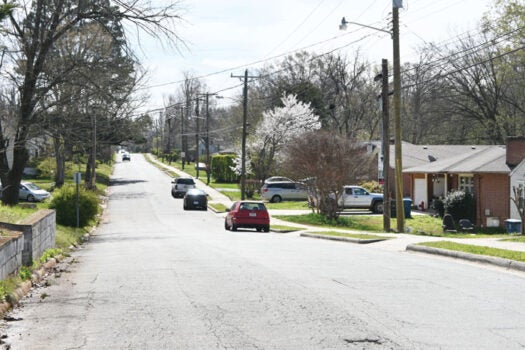Byrne Criminal Justice Innovation Program has an end in sight
Published 12:05 am Tuesday, March 26, 2024
SALISBURY — After years of planning and gathering information, the Byrne Criminal Justice Innovation Program is beginning to see a light at the end of the tunnel. The $800,000 BCJI grant is allocated by the Department of Justice, Bureau of Justice Assistance and was awarded to the Salisbury Police Department in 2021 as a way to fund initiatives and programs that will go towards reducing crime and improving the West End neighborhood.
Project Coordinator Chanel Nestor said they are finalizing partners for each of the directives set forth in the action plan. Staff has been collaborating with the United Way, Rowan-Cabarrus Community College Small Business Center, Salisbury’s planning department, and the Centralina Council of Governments for all aspects of the plan.
The city has organized roundtable discussions, beautification sessions and community input meetings to discover from the public how the grant funds should be spent.
The aim of the grant is to formulate “placed-based strategies” and “evidence-based solutions” to combat crime in the West End. The grant will go towards creating a West End neighborhood association, neighborhood beautification, crime intervention neighborhood training and installing security cameras as well as street lights.
On March 29, the recipients of the $200,000 West End Youth and Family Summer Program Capacity grant will be announced. Nestor said they received 42 submissions, but some did not request the full $20,000 that they were eligible for, so more than 10 entities could receive funds.
Those who are chosen will be given their money within the first two weeks of April.
Chanel said the goal is to disclose the recipients of the $2,500 small businesses grants by “mid, late summer.” Twenty startup and established businesses are to have funds by Sept. 30.
The business and summer program grants are both one-time grants.
Dr. Jessica Herbert, CEO of IDEA Analytics, the research partner for the BCJI grant, has engaged with the city by submitting geospatial analysis, putting together flyers, conducting evidence-based surveys and consulting on financial management.
“Advising and helping to support operational plans for other crime reduction strategies, which is the point of the project,” Herbert said.
Right now, IDEA Analytics’ role is holding bimonthly meetings with SPD and other community figures, discussing project updates and obtaining current data as it comes in.
For both Nestor and Herbert, they feel strongly on where the West End neighborhood is heading thanks to the contributions that Salisbury has made.
“I feel very confident in the neighborhood. I’ve had the opportunity to work with a lot of individuals that want to see change and they’re not just looking for the change to be done for them, but they’re looking to be part of the change,” Nestor said.
“Salisbury will continue to be a BCJI site and known in the program with the DOJ for their efforts and I think that’s a good legacy to have and the community should be proud that they’ve been able to achieve the things that they’ve achieved,” Herbert said.
Nestor has a contract to be in Salisbury until October when the grant period is over, but said there are “opportunities for an extension.”
The action plan has been formally approved by the BJA, but Nestor said they are not able to publicly share it yet. They are in the “process of developing a communication strategy” and will be announcing it at a later date.
There will be a follow-up story after the budget and action plan are released.




